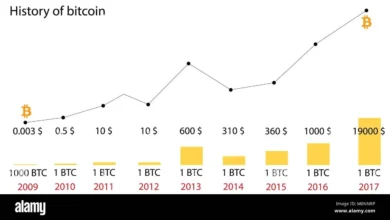Trump Tariffs: Economic Impact and Trade Policy Updates

Trump tariffs have become a defining element of his administration’s trade strategy, inciting both support and fierce criticism across the political landscape. Implemented to bolster U.S. manufacturing and reduce dependency on foreign goods, these tariffs have prompted significant discussions about their economic impact and potential to stoke inflation. As President Trump insists on the permanence of his trade policies, reactions from Democrats, including Biden tariffs response, highlight growing concerns about their effect on everyday consumers and the broader economy. Additionally, the complex nature of US-China trade relations has been exacerbated, illuminating the delicate balance between protectionism and global commerce. Amidst these developments, the debates surrounding the economic aftermath of tariffs continue, raising questions about long-term repercussions and the strength of Trump’s trade agenda.
The trade tariffs introduced under Trump’s administration serve as a pivotal point in ongoing discussions about American economic policies. These protective measures, aimed at reorienting the U.S. supply chain and revitalizing domestic industries, have led to diverse reactions among economists and lawmakers alike. The administration’s strategy has been met with scrutiny regarding its effectiveness in countering inflation and enhancing trade relations, particularly with China. As the Biden administration formulates its response to tariffs, the landscape of international trade is evolving, influenced by the repercussions of past decisions. The implications of these tariffs reach beyond immediate financial concerns, possibly paving the way for future debates on economic sovereignty versus global interdependence.
Understanding Trump Tariffs and Their Economic Impact
The Trump tariffs, implemented as part of President Trump’s trade policy, have significantly reshaped the economic landscape of the United States. These tariffs were designed to protect American industries by imposing taxes on imported goods, especially from countries like China. However, the economic impact of tariffs has been a subject of heated debate. Critics argue that they lead to increased prices for consumers, negatively affecting purchasing power, while supporters claim that they foster domestic production and job creation.
In the short term, economic analysis suggests that these tariffs could trigger inflationary pressures. Federal Reserve Chair Jerome Powell indicated that tariffs are likely to cause prices to rise more than anticipated. This inflation stems from higher costs for manufacturers who rely on imported raw materials, ultimately being passed down to consumers. Therefore, while the intent of Trump tariffs may have been to bolster the economy, the unintended consequences could exacerbate financial strain for average Americans.
Biden’s Response to Trump’s Tariffs: A New Trade Strategy?
In the wake of Trump’s controversial tariffs, President Biden faces the challenging task of navigating the evolving landscape of U.S.-China trade relations. Biden has not immediately reversed the tariffs but has indicated a nuanced approach that could involve recalibrating the country’s trade strategy. Some analysts suggest that Biden could seek to renegotiate terms to alleviate the strain on American consumers while still holding China accountable for unfair trade practices.
Biden’s administration aims to implement policies that address the concerns over the economic impact of tariffs while also being sensitive to inflationary pressures. The Democratic stance emphasizes a balanced approach that seeks to protect American workers without overwhelming them with costs. This ongoing trade dilemma highlights a pivotal moment in U.S. economic policy, as the administration grapples with the legacies of Trump trade policies and strives to establish a more sustainable economic framework.
The Social Media Influence on Trade Perceptions
President Trump’s engagement on social media platforms, particularly Truth Social, has played a pivotal role in shaping public opinion regarding his tariffs. His assertions that “this is a great time to get rich” resonate with a segment of supporters who perceive these policies as beneficial. The viral nature of content on platforms like TikTok amplifies such claims, leading to a divisive perception of his economic initiatives. As misinformation spreads, the narrative surrounding tariffs continues to evolve, further complicating public understanding.
The influence of social media on how tariffs are perceived reflects a broader trend where economic policies are no longer just discussed in financial circles. Instead, they have entered mainstream dialogue, often lacking the nuanced analysis they require. This phenomenon underscores the need for clearer communication from policymakers about the potential consequences of tariffs on everyday Americans, as misinterpretations can lead to misguided support or opposition.
Inflation and Tariffs: A Complex Relationship
The relationship between inflation and tariffs presents a complex puzzle for economists and policymakers alike. As President Trump’s tariffs came into effect, many observers noted the immediate inflationary effects on new goods entering domestic markets. The increased fees on imports not only affect the price of those goods but can also ripple through the economy, exacerbating inflation as businesses adjust their pricing strategies to maintain profit margins.
Furthermore, the interconnected nature of the global economy means that higher tariffs can create a chain reaction, prompting other countries to retaliate with their tariffs, as seen in the U.S.-China trade relations. This tit-for-tat escalation can worsen overall inflation, challenging the objectives of Trump’s trade policies while pressing the Biden administration to respond thoughtfully to mitigate these economic pressures.
Long-term Consequences of Trump Trade Policies
The long-term consequences of Trump’s trade policies, particularly the implementation of tariffs, remain a focal point for future economic forecasts. While intended to protect American jobs and industries, these tariffs may inadvertently lead to a weakening of the consumer base, as businesses grapple with increased operational costs. The potential for recession looms larger as the economic growth that tariffs were designed to foster faces significant headwinds.
Additionally, the evolving landscape of U.S.-China relations, influenced heavily by these trade policies, poses a critical challenge. Experts warn that prolonged tariffs could lead to destabilizing effects on global markets, ultimately impacting investment flows and trade partnerships. As the Biden administration contemplates its next moves, understanding these long-term consequences will be vital in crafting a strategy that ensures economic stability.
Domestic Reactions to Tariffs: Politicians and Public Sentiment
The announcement of Trump tariffs has sparked a mixed reaction among politicians and the public. Republican leaders have largely supported the tariffs as a necessary measure to put American workers first, while Democrats have critiqued the policies as detrimental, arguing that they prioritize political posturing over the economic realities facing American families. Prominent voices within the Democratic party, such as Senator Chuck Schumer, have highlighted the disconnect between Trump’s affluent lifestyle and the struggles of average Americans, calling for more hands-on engagement from the president with constituents.
Public sentiment around tariffs remains divided, with some seeing them as a necessary step to corrective trade practices, while others are concerned about the impending increase in costs for everyday items. Such disparities in opinion suggest that Trump’s tariffs could be a double-edged sword, offering immediate political gains for some at the potential cost of long-term economic wellbeing for many.
The Role of Economic Experts in Analyzing Tariff Policies
Economic experts play a crucial role in analyzing the implications of tariffs, providing insights and forecasts that can inform both public discourse and policy decisions. Many economists have criticized the Trump tariffs, citing concerns over their long-term impact on inflation and economic growth. Through research and economic modeling, experts can help predict how tariffs will alter consumer behavior, business investment, and international trade relationships.
This economic discourse is essential, especially as the U.S. moves under a new administration seeking to recalibrate its trade approach. Understanding the underlying economic theories related to tariffs and trade enables policymakers to make informed decisions that balance protectionism with broader economic goals. Ultimately, the collaboration between economists and policymakers can pave the way for strategies that support both domestic industries and the overall economy.
China’s Reaction to Trump’s Tariffs: A Strategic Response
China’s response to Trump’s tariffs has been characterized by a combination of retaliation and negotiation attempts. The Chinese government has imposed its own tariffs on U.S. goods, aiming to mitigate the impact of American trade policies on its economy. This escalatory nature of U.S.-China trade relations highlights the delicate balance that both countries must maintain to avoid further destabilization of their economic partnerships.
Moreover, the ongoing negotiations and discussions surrounding potential resolutions exhibit the intricate dynamics of global trade. As Trump characterizes tariffs as a strategy to bring foreign nations to the negotiating table, the stakes continue to rise for both American and Chinese businesses. Understanding the implications of these tariffs requires a comprehensive look at the geopolitical landscape, reflecting the interconnectedness of global markets.
Negotiations and Future Prospects of U.S.-China Trade
The future prospects of U.S.-China trade, amid the backdrop of escalating tariffs, hinge significantly on negotiations between the two countries. As Trump has indicated a willingness to engage in one-on-one discussions with Chinese officials, the potential for reaching a compromise becomes an avenue worth exploring. Effective negotiation strategies may lead to the reduction of tariffs, providing much-needed relief for U.S. consumers and businesses alike.
However, as negotiations evolve, the complexities surrounding trade imbalances and economic dependencies must be addressed. The path forward will require astute diplomatic maneuvering, with an eye on both protecting American interests and fostering cooperative relations with China. Ultimately, how well the Biden administration navigates this landscape will be pivotal in shaping the future of U.S.-China trade relations.
Frequently Asked Questions
What are Trump tariffs and how do they affect the US economy?
Trump tariffs are import duties imposed by President Donald Trump on various goods from other countries, primarily aimed at protecting American industries. These tariffs can increase the prices of imported goods, leading to concerns about inflation and their potential economic impact, including dampening economic growth and possibly triggering a recession.
How do Trump trade policies influence inflation and tariffs in the US?
Trump’s trade policies, which include the implementation of tariffs, are believed to contribute to rising inflation as businesses pass on the increased costs of imported goods to consumers. This inflationary pressure can affect households’ purchasing power and overall economic stability.
What is the Biden administration’s response to Trump tariffs?
The Biden administration has faced challenges related to Trump tariffs, including deciding whether to maintain, adjust, or eliminate these trade barriers. The response has focused on assessing their impact on inflation, the economy, and global trade relations, particularly with China.
How have Trump tariffs affected US-China trade relations?
Trump tariffs significantly escalated tensions in US-China trade relations, as they prompted retaliatory measures from China and led to a trade war. The tariffs aimed to reduce the trade deficit with China and encourage domestic production, but they also complicated negotiations between the two countries.
What are the long-term economic impacts of Trump tariffs?
The long-term economic impacts of Trump tariffs may include sustained inflation rates, altered global supply chains, and potential shifts in manufacturing jobs back to the US. However, the effectiveness of these tariffs in achieving economic growth or addressing trade deficits remains contested among economists.
| Key Point | Details |
|---|---|
| Trump’s Tariffs Announcement | President Trump announced widespread tariffs that cause economic turmoil. |
| Trump’s Weekend Routine | Trump spent the weekend at his Mar-a-Lago resort, participating in golf and private dinners. |
| Economic Concerns | The tariffs are expected to raise prices and dampen economic growth, heightening recession fears. |
| Visitors’ Response | Supporters greeted Trump, while critics noted his ‘billionaire bubble’ amid economic struggles for average Americans. |
| Federal Reserve’s Take | Fed Chair Jerome Powell stated the tariffs are likely to cause inflation and economic strain. |
| International Negotiations | Trump is negotiating with foreign leaders, including Vietnam and criticizing China for its tariffs. |
| Job Reports | Trump highlighted a job report showing 228,000 new jobs added in March, claiming his policies are working. |
Summary
Trump tariffs have become a crucial element of his trade policy, leading to significant economic discussions and responses both domestically and internationally. As the tariffs ripple through the economy, they have evoked diverse reactions, with supporters believing in their potential to reclaim economic strength, while critics warn of rising prices and inflation risks. Amidst these challenges, Trump’s focus continues to center on advocating for his policies, indicating that he believes they will ultimately benefit the American economy.




